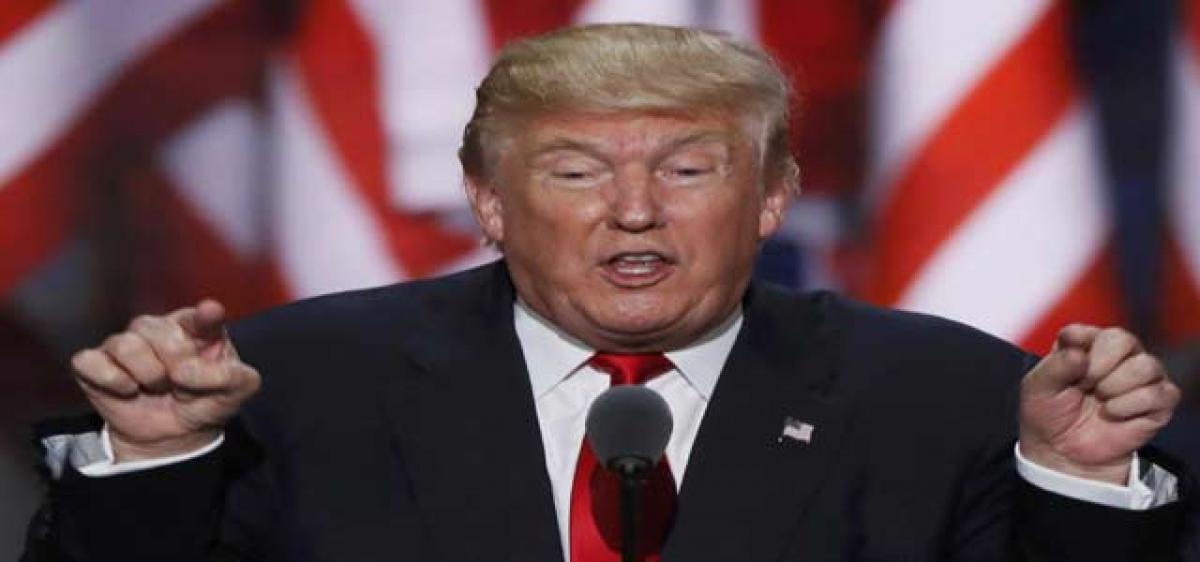Trump policies bode well for China’s rise

Rise of right-wing populism in Europe, burgeoning Euroscepticism, Brexit and Trump’s victory have set new global precedents. Numerous Op-eds have spelled out bombastic effects of Brexit and US Presidential elections whose stunning verdicts left people gobsmacked.
Rise of right-wing populism in Europe, burgeoning Euroscepticism, Brexit and Trump’s victory have set new global precedents. Numerous Op-eds have spelled out bombastic effects of Brexit and US Presidential elections whose stunning verdicts left people gobsmacked.
The referendum results and Donald Trump’s victory had clearly undermined the intellect of the Liberals ensconced in walled high-rise buildings.
Brexit and Trump’s triumph signified widespread public acceptance of the rhetoric “shutting off doors to immigrants” and “Make America Great Again” respectively.
Academicians concluded that the startling outcomes truly reflected a simmering dissent against globalisation while others ascribed it to frenzied fixation of restoring identity.
But the imminent effects on geopolitical scenario were hardly discussed. The sudden shift in people’s choices implied that Britain and the US which collectively reigned globally as Western axis may no longer continue to wield more influence and power over the rest of the World.
Lone super power
Europe and later the US largely controlled the international arena from early 18th century until the turn of 21st century. With the collapse of Soviet Union, a formidable challenger till the end of Cold War, the US emerged as the lone super power.
Asia despite its huge size could never project its power and remained a subdued continent. The humongous diversity, lack of unity, incoherent alliances, colonisation stymied the continent to evolve as a collaborative entity.
While Asian countries were engrossed in nation-building, US and Europe reached the pinnacles of economic development.
Envisaging the developmental potential of emerging nations, strategists declared that 21st century belongs to Asia. Subsequently, through rapid globalisation, the West continued to invest and catered to insatiable appetite for development of Asian economies. Steadily the dynamics began to change.
Protectionism sweeps West
Congruent to populist surge against, the West is now propelled towards protectionism. It is a trend, which will open gateways to Asian countries to explore and navigate through the charters which were forte of the West earlier.
This slow but imminent shift can diminish preponderance of multilateral institutions patronised by the West might. A characteristic synchronised attunement of geopolitical stratagems to suit western interests will be resisted. Together, this systematic shift in power fulcrum will augur well for China’s global ambitions.
The self-imposed retreat of the two dominant democracies might usher world nations into a network dominated by Asia, more specifically China. China which has been itching to project itself as the emerging superpower can launch itself unabashedly.
To gear up for the new responsibility China had already launched its own multilateral institutes – AIIB (Asia Infrastructure Investment Bank), NDB (New Development Bank) and the economic overdrive under the ruse of infrastructure development – OBOR (One Belt One Road) and MSR (Maritime Silk Route).
Like Europeans who inveterately spread tentacles to colonise the globe, emulating similar tactics, China will reincarnate as the neo-colonist through its dubious aid games. In fact, the imperialistic tendencies of China are expounded by its all-weather friend, Pakistan.
Express Tribune recently carried out a scathing piece saying that $46 billion CPEC was “designed by China for China” to gain access to Arabian Sea. Though China says Pakistan will immensely benefit from the project, it is more than clear that China is keen on capitalising on the geostrategic positioning of Pakistan.
Further the article opined that “China will use CPEC to loot and plunder Baluchistan.” India raised serious objections to CPEC since the 3000km long highway adjoining the strategic space of India passes through its legitimate territory.
List of Chinese perfidies under the guise of developing infrastructure projects have already accrued more losses to small countries which included among others – India’s neighbor Sri Lanka. The lacuna created by a weakened EU and an inwardly looking US in the international sphere is up for grabs. Unmistakably, China is rapidly gaining ground during this intermittent period of uncertainty and vacillation.
Trump’s protectionist attitude and intemperate arguments towards climate change, detached approach towards alliances might cost US dearly. By inadvertently rejecting the TPP (Trans-Pacific Partnership) as a “disaster for American jobs,” US has already conceded more space to China.
Clearly, Brexit, US Presidential Elections and Euroscepticism reflected in the latest Italian referendum had a toll on three major aspects – trade, investment, and migration. A tectonic shift in geopolitical alignments is clearly apace.
By: Ramaharitha Pusarla








